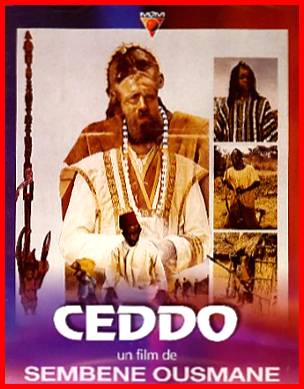
Just entered an African-movie
mood.
Ceddo (1977) by the
Senegalese director Ousmane Sembene tops the list.
The best and shortest description
of the movie belongs to
Mark Leeper: a very big film on a very small scale.
Put differently: an Akira Kurasawa movie on the scale of a village. A
micro-epic.
The movie tells the story of an
African tribe forced to covert to Islam. A small group of rebels - the
Ceddo - refuses to follow the majority and decides to keep alive their
traditions.
It is not God that makes people
human, says one of the rebels.
It is Him, argues the imam. And
actually, if you don't recognize Allah you are dogs that should be killed.
But we have our own traditions
and beliefs, continues the rebel.
It doesn't matter.
They should be killed, tells the
imam to his followers.
(a very personal and liberal
narration of the movie).
Don't forget the Catholics. They
are watching on the margins, they are selling wine and guns to the natives.
They are buying slaves and baptize them thereafter.
In the end, some of them are
killed. The king, because the law of Allah does not allow two different authorities
(a religious and a secular one) to reign in the community. Catholics,
because a village is too small to accommodate two Deities. The imam himself got
killed. For the power of blood is stronger than the appeal of religious
texts.
Other people choose the exile.
The movie has a sad end.
